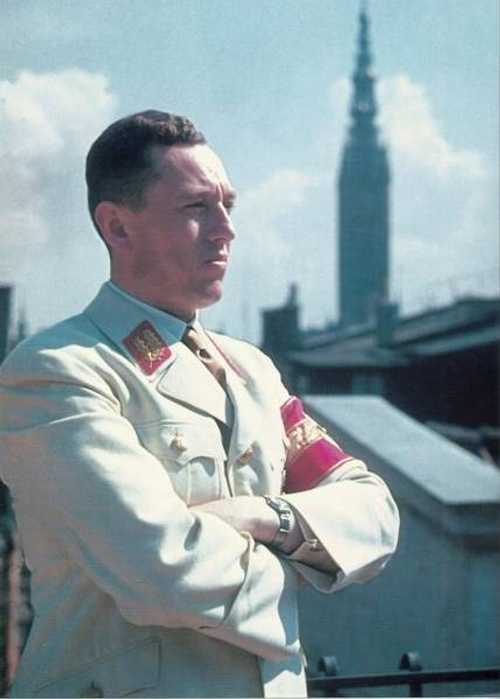
Gauleiter of Danzig.
Colour portrait 'photo of Albert Forster by Heinrich Hoffmann, 1941. Forster seems to have been a practical administrator, for good and ill. Operating in an area where the issue of "Germanisation" was ultra-sensitive, he favoured dealing with the problem by "Germanising" just about anybody who could answer "Ja" to the question of whether they were German. This may have helped to minimise tensions in his (in reality) pretty diverse Gau. On the other hand, he hardly helped his colleagues by determinedly resisting the "resettlement" of Jews in his area of authority; as a result, large numbers of transported Jews were further transported to the Government-General of Poland, ending up in the maw of Aktion Reinhard. Understandably, he was not regarded with great affection by the SS, or by Nazi administrators in the G-G; nor was he very enthusiastic about them. In the end, he was complicit in murder to an extent sufficient to lead to his condemnation and execution by Poland after the war. Best regards, JR.
This is a companion discussion topic for the original entry at https://ww2incolor.com/gallery/german-leadership/30731/gauleiter-of-danzig.
